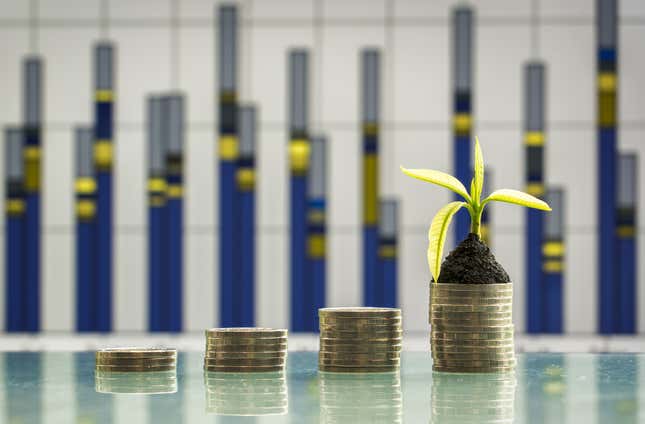
Investors searching for alpha—to beat the market—won’t find it in socially responsible investing. A new study examining a decade of data finds portfolios of exchange-traded funds (ETFs) that follow environmental, social, and governance (ESG) investing strategies did not perform any better than standard index funds.
The study by Scientific Beta, an index provider and consultancy linked to France’s EDHEC Business School, found that ESG ETF funds underperformed by an average of 0.2% on an annual basis when compared to a proxy for the US equity market.
Only one year, 2020, stood out with ESG ETFs outperforming by 4.2%. That was primarily due to the funds’ exposure to red-hot technology stocks, which alone contributed to more than half the overperformance versus the broad benchmark index.
But one good year doesn’t make a trend. The study concluded that on an annual basis, both average relative returns and capital asset pricing model alpha, a measure of excess returns over a benchmark, are close to zero over the past decade.
What is a socially conscious investor to do?
Giovanni Bruno, a co-author of the Scientific Beta study and the group’s senior quantitative researcher, says the findings don’t suggest that socially conscious investors should shy away from investing in this space.
“ESG neither substantially boosts nor hampers performance,” he said. “So conscious investors can still make money investing in portfolios that allow them to extract systematic factor risk premium such as the market, value, size, momentum, and quality.”
Miguel Padro, an assistant director at the Aspen Institute think tank, agrees but adds a caveat: beware of big promises of outperformance.
The ESG label conundrum
Part of the contention over ESG investing is the ESG label itself.
“ESG is just an abbreviation for categories of potentially investor-relevant information that don’t show up on a company’s balance sheet. ESG is not an asset class,” Padro said.
The US Securities Exchange Commision dealt with the rise of ESG fund labeling in 2021 by ramping up scrutiny of investment companies, to ensure there are quality checks, policies, and protocols in picking companies for ESG portfolios.

In 2022, the SEC charged BNY Mellon Investment Adviser for misstatements and omissions due to a number of investments held in ESG-designated funds without any review of whether they deserved to be labeled as such.
“Why would we assume [ESG] stocks should outperform?”
Judy Samuelson, who runs the Business and Society Program at Aspen Institute, says investors in ESG-themed funds should stay focused on the long view, and on what component companies are doing to serve their environmental, social, and governance standards.
“Why would we assume the stocks should outperform?” she said. Companies that “do good” aren’t necessarily cheaper to run, she warns.
“Most so-called ESG funds that run in public markets are not structured around stocks that are likely to be better performers, but rather about climate, or treating their employee better, toxic practices, human rights abuses, and so on,” said Samuelson.
To that end, she said, “we need fresh thinking” on boards. “The investors care, their employees care… Many people are keen to invest in companies that care. They want a planet, they want their grandchildren to grow up to have a quality life.”